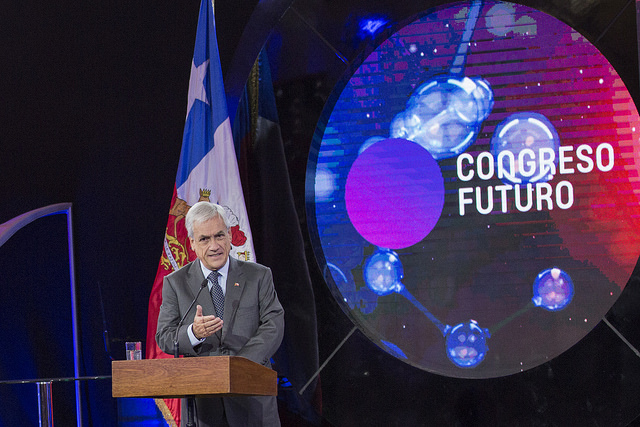Changing Abortion Policy in Chile

Future Congress Inauguration 2018, via Flicker
In August of 2017, the Constitutional Court of Chile approved a controversial bill which allows abortion during the first twelve weeks of the pregnancy under any of three possible conditions: if the mother’s life is in danger, if the fetus will not survive the pregnancy, or if the child is the result of a rape.
The bill was passed in a close congressional 6-4 vote and has been highly debated since. Prominent members of the Catholic church, such as Cristián Contrera who serves as Vice President of the Episcopal Conference of Bishops, have spoken out against the bill deeming it a “terrible decision, influenced by the ideology of death.”
The country once had one of the most liberal abortion policies in all of Latin America, but as the Catholic church increased in popularity and power, conservative ideology began to sweep the nation. In 1989, abortion was banned altogether.
Therefore, this was a landmark decision for the country and a victory for former president, Michelle Bachelet, whose campaign included plans to ease the nation’s abortion policy. Bachelet, who governed Chile from 2006-2010 as the first female President of the country, and who introduced the bill in 2015, commented on the legislative action saying “Today, women have won, democracy has won, all of Chile has won.”
However, the results of proceeding presidential election of 2017 endangered Bachelet’s historic win. Conservative billionaire, Sebastián Piñera, won in a decisive nine-point victory. His election interrupted a two-decade long centre-left rule of the country and likely means the end to Bachelet’s abortion policy.
Piñera’s platform focused on revamping the national economy as well as steering the country away from its previously liberal leadership. During his campaign, Piñera also commented that the state stands with the pro-life sentiment of the Catholic church. Since his inauguration on March 11, he has appointed Isabel Plá as Minister for Women and Gender Equality, and Emilio Santelices as Health Minister; both of whom were vocal opponents of the change in abortion policy.
This shift in leadership has become somewhat of a global phenomenon. Countries around the world are experiencing shifts to conservative, and even alt-right, governance. The United States is an excellent example of this. In 2016, Donald Trump, the candidate for the politically conservative Republican party, was elected in response to the increasingly liberal policy changes under former President Barack Obama, with some of Trump’s supporters identifying as members of the alt-right and/or members of Neo-Nazi groups.
This shift in leadership also demonstrates the rejection of reproductive justice in the nation of Chile. Bachelet’s presidency was historic and her policies helped the nation make great strides regarding rights over one’s body. However, the response of the citizens was to elect a conservative president who is likely to enact efforts to rollback on the new policies, likely due in part to the prominence of Catholicism in the nation.
The global trend in politics currently demonstrates a pendulum-like behavior, oscillating between periods of conservative and liberal extremes, and creating a polarizing political climate. Therefore, efforts of bodily autonomy empowerment and reproductive rights in Chile will likely not be a priority of the nation until the following election and presidency.




